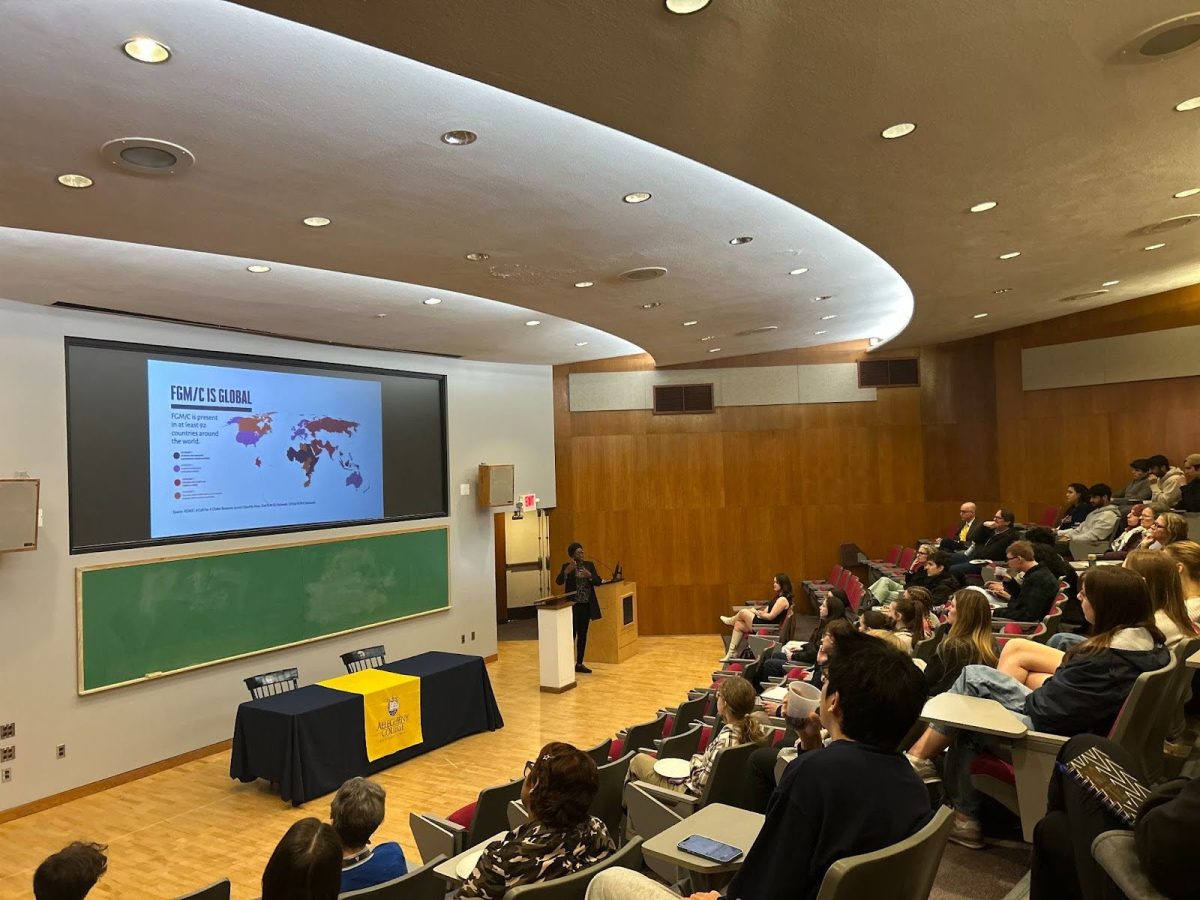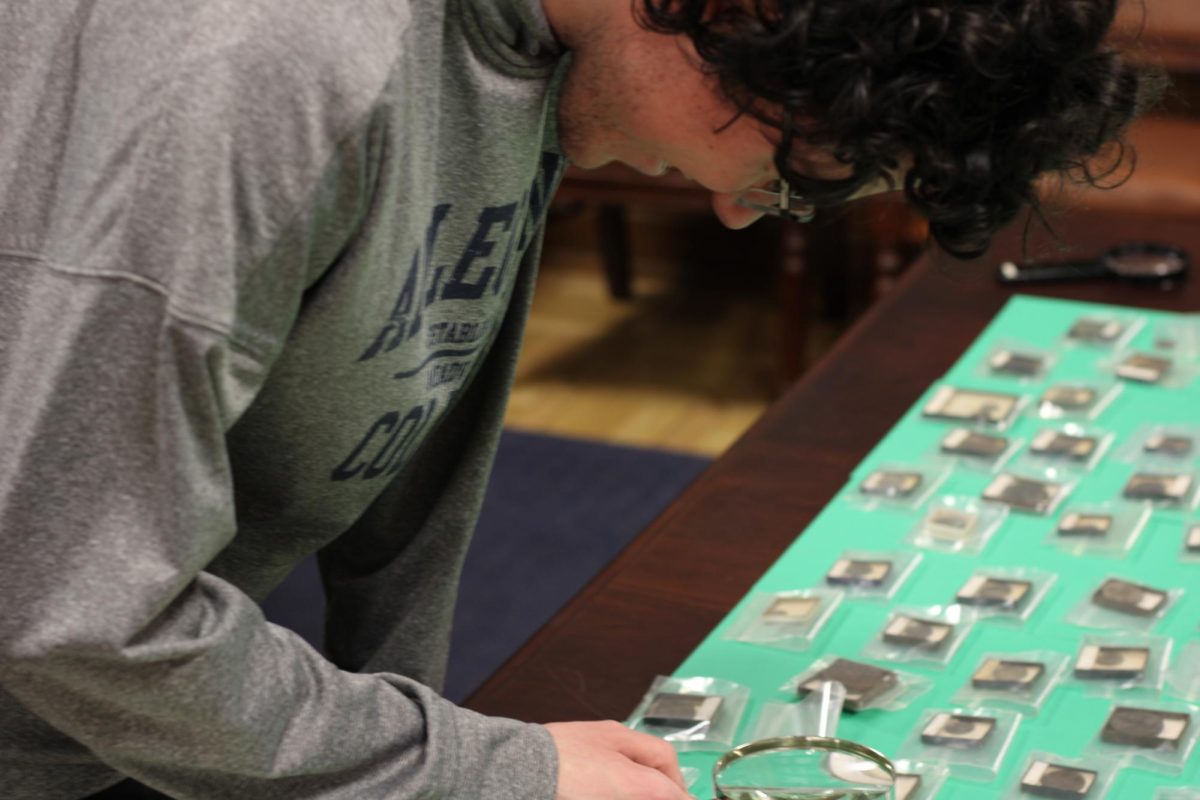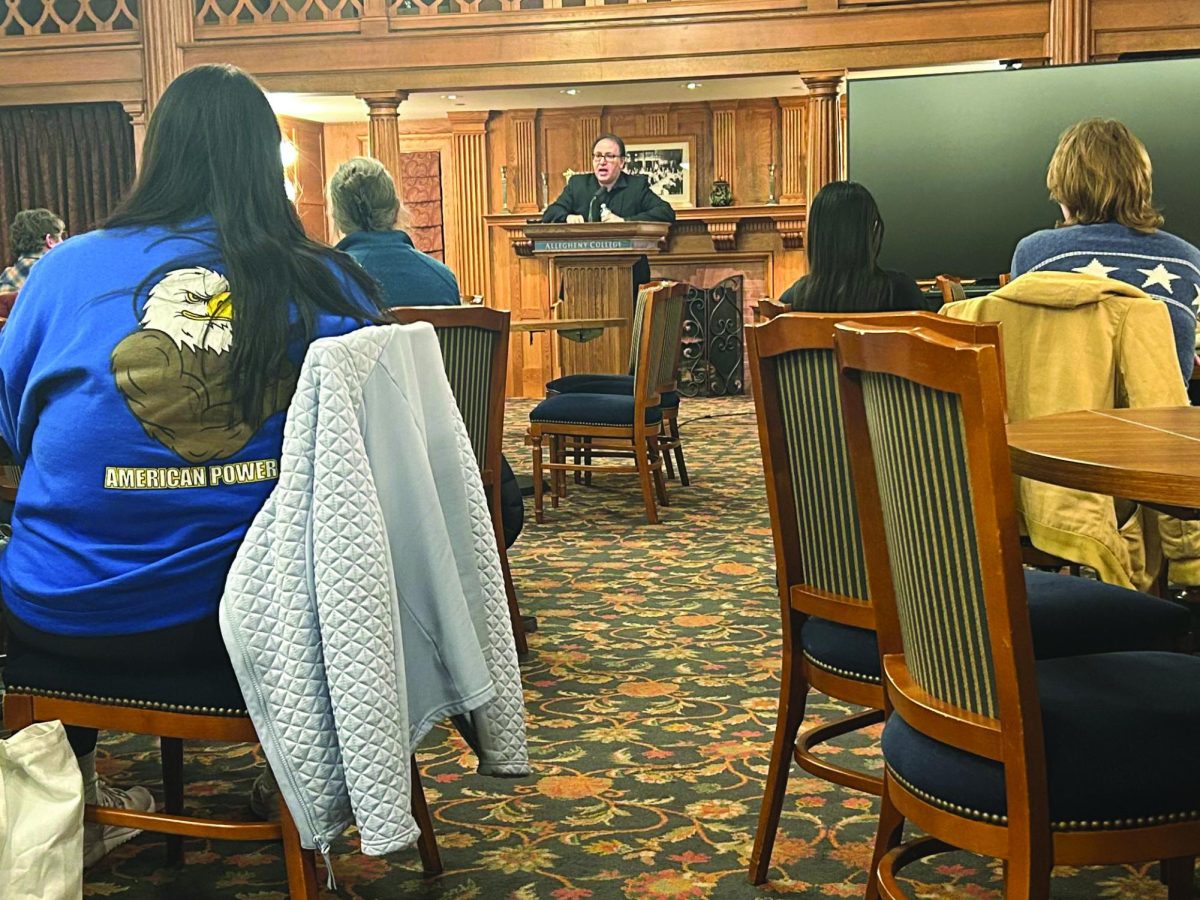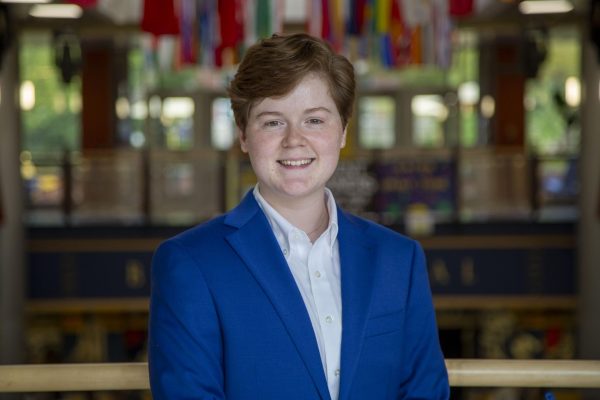What is one of the major environmental issues you as a professional focus on, and what, if anything, gives you hope for the future?
Terrence Bensel, Professor and Chair of the Department of Environmental Science
One of the major environmental issues that I focus on is energy use and the environment, and in particular the energy transition away from polluting fossil fuels and towards renewable energy alternatives. It’s fair to say that I’ve been an advocate for such an energy transition for almost 45 years now, first as a student activist and then, eventually, as an academic and a professor. It’s also fair to say that much of that time has been frustrating as well-financed, fossil fuel-funded campaigns have undermined investment in renewable energy development and deployment, while short-sighted analyses claimed that renewables were far more expensive than fossil fuels while completely ignoring all of the social and environmental externalities associated with the latter. In the last 5-10 years all of that has begun to change; rapidly and dramatically! The bulk of new electric generating capacity being added in this country today is in the form of wind, solar and other renewables. Onshore wind power and utility-scale solar projects are now among the cheapest sources of electricity to develop. Could we be doing more? Yes. But the change from just 10 years ago is remarkable and long overdue, and for that I have more hope for the future.
Kurt Hatcher, Sustainability Coordinator
It’s tough to call out a single issue that I work on, because our office touches so many different aspects of campus operations. That being said, one that has been most interesting to me since I started in this position has been the intersection of sustainability and diversity, equity and inclusion. The 2 areas share similarities: they must be fairly infused into the culture of the institution, they require us to examine the way we do things and be open to change, and they represent core values that we continuously aspire to (rather than jobs to do, or endpoints to achieve).
Two things give me hope. First, I’ve seen so much change in the last 17 years. Things happen slowly, incrementally, sometimes painfully so, until they don’t. And once we see a huge change unfold, it seems obvious and inevitable in hindsight. The part that required persistence and sacrifice, organizing, and marching and voting is sometimes forgotten. I try to keep the long view in mind, even when the short term outlook seems bleak. Second, I have worked with incredible students who go on to do meaningful and necessary work. They persist, sacrifice, organize, march, and vote. The odds of success appear much greater once you know that our ranks are growing every day.
Delia Byrnes, Assistant Professor of Environmental Science and Sustainability
As someone working in the interdisciplinary field of Environmental Humanities, the major environmental issue I focus on is how we tell stories about the environment and how those stories materialize in specific human-environment relations, from extractivism to interdependence; from climate despair to hope; from neoliberal individualism to multispecies community. I have immense hope for the future, which is re-ignited every time I learn about the work of grassroots activists who push us beyond a carbon-constrained world. I’m especially inspired by the global Blockadia movement, which encompasses the civil disobedience of the Pacific Climate Warriors, the #NoDAPL water protectors, and a vast network of direct action protests against fossil fuel infrastructure. I’m also inspired every day by the commitment of Allegheny students to social and environmental justice!
Rich Bowden, Professor of Environmental Science and Sustainability
I love studying and being in forests because they are so darn interesting and they are simply beautiful. It is phenomenal that a tree can use an invisible gas in the atmosphere to produce a visible object that can tower hundreds of feet aboveground, and that provides homes to wildlife, holds soil in place, recycles water, and provides wood that we can use.
There is an enormity of hope in each student who learns about forests, and who appreciates their beauty and function. I am encouraged by local organizations like the AC Watershed Conservation Research Center, the French Creek Valley Conservancy, the Northwest PA Woodland Association, and the Foundation for Sustainable Forests that all work actively to protect forests and help local landowners protect their forests. I’m also excited by numerous ways in which forest science is being used by forest managers in creatively and sustainably use forest ecosystems.
Adrienne Krone, Assistant Professor of Environmental Science and Sustainability and Religious Studies
A lot of my academic work focuses on the intersections between religion and agriculture, like my current project on Jewish Community Farming. I find hope in the work that religious communities are doing to move us towards smaller-scale sustainable agriculture systems. I also find hope in the local efforts in this area. I recently joined the Meadville Market Authority and I am so inspired by the work our team at the Meadville Market House is doing to support and promote local farmers and artisans.
Wendy Kedzierski, Director of Creek Connections
The major environmental issue I focus on as a professional is watershed health and educating people about the issues and their part in improving conditions for the future. Working with young people gives me hope because they are so caring and willing to do the work needed to make things better. We are beyond the debate on whether change is happening and focusing on what we can do right now to address the changes to come. Seeing students discover living creatures in their local waterways never gets old. The students are full of curiosity and wonder and once they see the complex ecosystem doing its thing, they want to find out how to keep the ecosystem thriving into the future.
Ian Carbone, Associate Professor of Environmental Science and Sustainability
My work focuses on energy systems and climate change. The pace of our accelerating energy transition gives me hope. Global renewable energy development increased by 50% between 2022 and 2023. Experts predict that this growth will continue to accelerate over the next five years.








